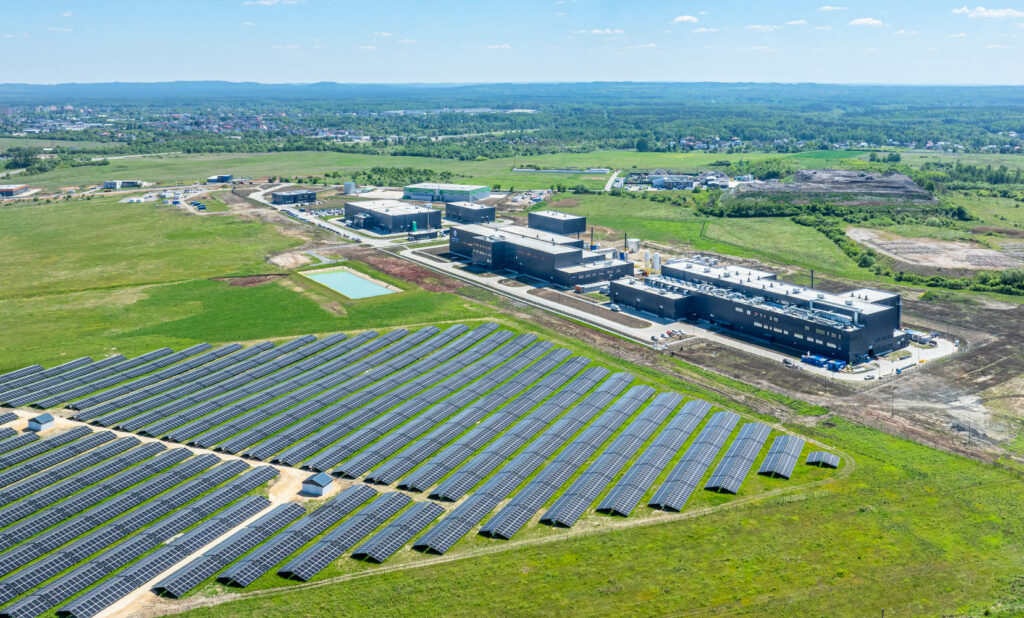Keep our news free from ads and paywalls by making a donation to support our work!

Notes from Poland is run by a small editorial team and is published by an independent, non-profit foundation that is funded through donations from our readers. We cannot do what we do without your support.
Polish battery metals producer Elemental Battery Metals has been awarded a grant of 1 billion zloty (€240 million) by the Polish government to construct a plant for recovering valuable metals from used batteries and other electronic waste.
The grant was awarded by Poland’s development ministry through the European Union’s Temporary Crisis and Transition Framework (TCTF), a programme established to support the bloc’s shift to a net-zero economy following the outbreak of war in Ukraine.
Grupa Elemental otrzyma rządowy grant o wartości 1,038 mld zł w ramach unijnego programu TCTF (Temporary Crisis and Transition Framework) na realizację projektu Polvolt w Zawierciu, największego w tej części świata hubu do produkcji metali strategicznych. Ma to być jeden z…
— Janusz Piechociński (@Piechocinski) September 24, 2025
The funding will be used to construct a brand-new plant – adjacent to Elemental’s existing plant in Zawiercie – for recovering metals, the company told Notes from Poland. It says it will be the largest strategic metal production centre in the region.
Recognised under the European Critical Raw Materials Act (CRMA) as one of 47 projects of strategic importance to the European Union – and one of only two Polish projects on that list – the plant aims to strengthen Europe’s raw material security and reduce dependence on imports from outside the bloc.
The first stage of Elemental’s investment programme, completed in 2024, included construction of a lithium-ion battery and automotive catalytic converter recycling plant, which currently employs nearly 200 people.
The grant, which was signed off by the ministry last month, will help finance the second phase. That includes the construction of the new plant, which is expected to create around 250 jobs, including positions in production, engineering and administration.
“The investment will include advanced battery metals refining processes, as well as the production and recovery of metals crucial to the energy, automotive, telecommunications and defence sectors,” Maciej Dudzic, CEO of Elemental Battery Metals, told Notes from Poland.
Poland’s role in the European supply chain of critical raw materials is “strategic and long-term”, says Dudzic. “The project meets growing demand from the electromobility and energy sectors, transfers global know-how to Polish industry, creates high-paying jobs, and positions Poland as a modern manufacturing and innovation hub.”
The plant will process “black battery mass” and other materials containing critical metals, reaching a potential annual capacity of tens of thousands of tonnes.
The total cost of the investment is estimated at 3 billion zloty, with the grant covering roughly 35% of the total. The remaining funding will come from equity, external debt and investor financing.
US firm Ascend Elements has announced the construction of a $1.25 billion battery materials plant in Poland.
It will help “make Europe independent of Asian suppliers and enable battery production without the need to import key materials”, says the company https://t.co/Dchprpnqkn
— Notes from Poland 🇵🇱 (@notesfrompoland) May 14, 2025
A US battery company, Ascend Elements, in May also announced plans to build a $1.25 billion (5 billion zloty) battery materials plant in Poland under the TCTF programme. The project is expected to receive a government subsidy of $320 million (1.2 billion zloty).
Unlike Elemental, however, Ascend Elements has not yet signed an agreement with the Polish development ministry, and the company has not disclosed the exact location of the facility, which is reported to be in southwestern Poland.
The plant is planned to produce precursor cathode active material (pCAM), a key component in lithium-ion batteries used in electric vehicles, smartphones, and other electronics. Ascend Elements expects to create at least 200 jobs, with production scheduled to begin in 2028.
In recent years, Poland has emerged as Europe’s largest producer of lithium-ion batteries and ranks second globally after China. It is home to Europe’s largest battery plant, operated by LG Energy Solution in Wrocław, which accounts for about half of the EU’s total battery production capacity, according to the International Energy Agency.
Poland is Europe's leading producer of lithium-ion batteries and second globally, behind only China.
But the industry's future is in question as the EU considers tougher emissions rules that could hit Poland's coal-dependent economy, writes @AlicjaPtak4 https://t.co/HNnB6Xrmzq
— Notes from Poland 🇵🇱 (@notesfrompoland) October 3, 2024

Notes from Poland is run by a small editorial team and published by an independent, non-profit foundation that is funded through donations from our readers. We cannot do what we do without your support.
Main image credit: Elemental Group/press materials

Alicja Ptak is deputy editor-in-chief of Notes from Poland and a multimedia journalist. She has written for Clean Energy Wire and The Times, and she hosts her own podcast, The Warsaw Wire, on Poland’s economy and energy sector. She previously worked for Reuters.



















